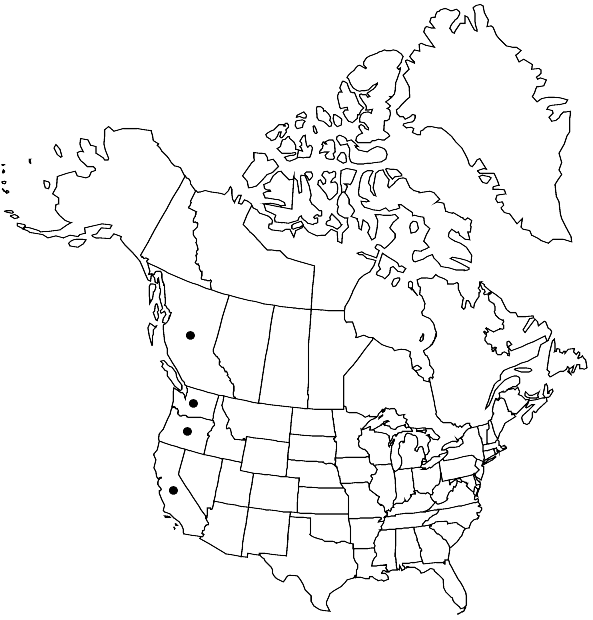Tortula bolanderi
Erythea 4: 51. 1896,.
Leaves long-ovate, elliptic or lingulate, apex rounded and short-apiculate or muticuous, margins weakly recurved in proximal 1/2 of leaf, weakly bordered in distal 1/2–3/4 of leaf with (2–)4–6 rows of thicker-walled, smaller cells; costa subpercurrent, percurrent or shortly excurrent as a small, sharp mucro, lacking an adaxial pad of cells, distally somewhat narrow, 3–4 cells across adaxial surface; distal laminal cells hexagonal, width 13–18(–24) µm, 1:1, strongly papillose. Sexual condition dioicous. Sporophytes exerted. Seta 0.9–1.5 cm. Capsule stegocarpic, not systylius, cylindric, erect and nearly straight, urn 1.5–2.5 mm; peristome of 32 twisted filaments, basal membrane low; operculum 1–1.5 mm. Spores 13–15 µm, spheric, essentially smooth.
Habitat: Soil, rock
Elevation: low to high elevations (0-1700 m)
Distribution

B.C., Calif., Oreg., Wash., Europe (France, Spain).
Discussion
Both Tortula bolanderi and T. amplexa differ from other species of the genus in the red color of the leaves in nature, a trait of Syntrichia. The costal section, however, exhibits a rounded stereid band rather than the semilunate shape of the latter.
Selected References
None.